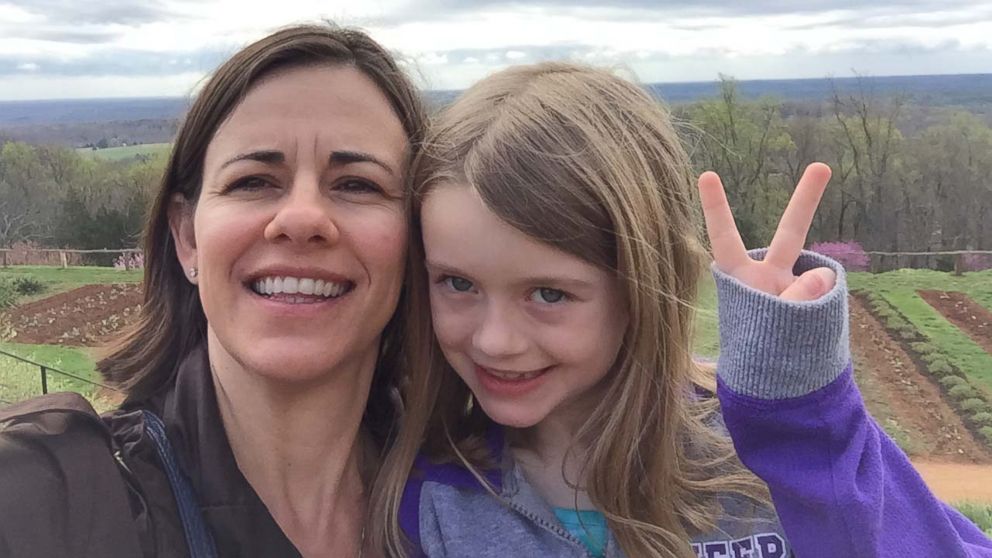With Ellie Challenge, family hopes to bring attention to daughter's rare disease
Ellie McGinn, 9, was born with a rare mitochondrial disease.

— -- Members of one Virginia family hope to bring attention to a rare disease that may cause paralysis or even death for their 9-year-old girl.
Ellie McGinn suffers from a rare genetic disorder that affects her brain and spinal cord. Her mother, Beth McGinn, of Arlington, Virginia, realized something was wrong with her daughter when she was a toddler.
"I started to notice her balance wasn't really good. I brought it up with the pediatrician," McGinn told ABC News. "At age 3 she would complain about pain in her feet ... That's when I started to kind of panic."
After seeing a series of specialists, Ellie was given a diagnosis of leukoencephalopathy with brainstem and spinal cord involvement and lactate elevation (LBSL), a rare mitochondrial disorder that is caused by a genetic mutation and affects the brain and spinal cord. It can lead to abnormalities of white matter in the brain and high levels of a substance called lactate. Symptoms include difficulty moving arms or legs, epilepsy, speech problems and, in severe cases, early death. Many children with the disease end up needing a wheelchair by their teens. There is no cure for the disease.
Ellie's symptoms include a tremor and weakness in a leg. She wears a helmet to school to protect her head if she has a seizure, according to her mother.
"She's a very sweet soul," McGinn said. "She wants to be a veterinarian ... She's the joy of our life."
Determined to find a better way to fight the condition, the McGinns started the Cure for Ellie charity organization in 2013 to raise awareness of and money for the disease. They started the organization after Ellie started to improve after treatments at the Kennedy Krieger Institute in Baltimore.
"I thought, 'Let's raise money until a cure comes along," and then we became a place for people to go after [a diagnosis]," said Beth McGinn. "That's actually been one of the greatest things."
The McGinn family is planning an initiative to bring attention to Ellie's disease by renaming the disease — something more manageable, "like ALS is Lou Gehrig's disease," Beth McGinn said. To come up with a new name, the McGinns started the Ellie Challenge, in which people could submit a new name for the disease as long as they managed to correctly pronounce "leukoencephalopathy with brainstem and spinal cord involvement and lactate elevation."
After getting dozens of submissions, Ellie and her sister picked their favorite: awesome disease. The name won't officially replace the current one, but Beth McGinn hopes it can become a popular alternative.
"We're going to put it on our website, and I know our doctors said they would use it, and the other patients who participated are on board," she said.
Ellie's condition is so rare that just about 100 people are known to have it, according to one of her physicians, Dr. Ali Fatemi, the director of the division of neurogenetics and the Moser Center for Leukodystrophies at the Kennedy Krieger Institute.
"I would think it's probably around 1 in 200,000" people who develops the disease, he told ABC News. He said some patients likely have milder versions that aren't diagnosed or are misdiagnosed as multiple sclerosis. "I'd say that's a very rough guess."
Fatemi said it is a struggle to bring attention to confusing and rare diseases like LBSL.
"The name is difficult," he added. "LBSL ... most doctors have no clue. They've never heard of it."
Some of the funds raised by Cure for Ellie have gone to Fatemi and the Kennedy Krieger Institute.
McGinn said she hopes the name change spurs people to learn about the disease.
"We're trying to create a sense of community," McGinn said. "We realized it's not just about her."




